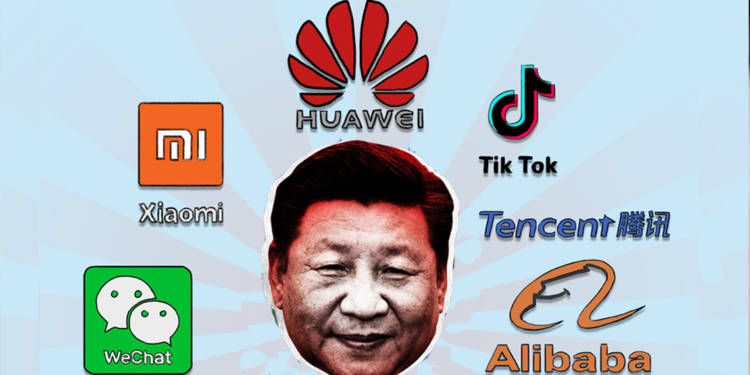Donald Trump- the President of the United States, is on a mission to destroy the Chinese technology sector. In the latest move to accomplish the task, the US Department of Commerce banned 33 Chinese companies and institutions for human rights violence and to address concerns over American National Security.
These companies were “complicit in human rights violations and abuses committed in China’s campaign of repression, mass arbitrary detention, forced labour and high-technology surveillance against Uighurs, ethnic Kazakhs, and other members of Muslim minority groups in the Xinjiang Uighur Autonomous Region,” said Department of Commerce.
Many of these companies work in Artificial Intelligence, Security, Automation and other high-tech sectors. Since last few years, especially after Trump came to power, United States has taken many steps to ensure that Chinese companies do not get projects of related national security like Military bases, Pentagon and other sensitive areas because many of these companies were reported to supplying intelligence inputs of Chinese armed forces.
Hikvision, one of the 33 companies that is banned from doing business in America, was reported to have sold devices that monitor US Security base, Memphis streets; this created a huge uproar in the conservative sections of American policy and media establishment. More importantly, 42 per cent of Hikvision is owned by the Chinese government itself.
The threats to Cybersecurity due to expanding role of Chinese technology companies are being raised in the US since last decade, but Obama government was too weak to question US liberal establishment which saw no harm in this. But Trump, in the last two years has taken many steps to ensure Cybersecurity of the US and banned many Chinese private and public companies from doing business in the US, with Huawei being most important of them.
The problem with Chinese companies is that there is no clear distinction between private and public units. The state-led Capitalism model of China is very unique, in which private companies owned individual or families loyal to the Chinese Communist Party are aggressively supported by the Communist government in domestic and foreign endeavours.
For example, Huawei, most controversial and most powerful Chinese technology company with annual revenue of more than 120 billion dollars, registers itself as a private company, with primary ownership lying with founder Ren Zhengfei. But there are dozens of reports from some of the most trusted media houses, that Communist government effectively owns the company and plays an active role in its management.
The founder-owner of many private companies like Tencent, BBK electronics are card-holding members of the Communist Party of China. Pony Ma, the founder of Tencent, has been representative of National People’s Congress (the legislative body of China).
Bytedance, the owner of popular video-sharing platform TikTok, has investment from Chinese Communist party-owned companies and it has repeatedly removed the content related to protest in Hong Kong and re-education camp of minorities in Xinjiang on the direction of the Chinese government.
In countries like US, India, there is a constant debate on whether the government can access the data of private companies if required but in China, there is no such debate! Every company, irrespective of its ownership status, is an extension of the Chinese government and Communist Party.
Therefore, the data collection by the private or public companies of China can be used by Chinese armed forces to wage cyber warfare on enemy countries.
Earlier the governments across the world were liberal on Chinese companies despite the fact that these companies did not meet their standards and regulations, because they supplied goods and services at very low prices compared to non-Chinese ones.
But after repeated reports of snooping on rising resent against Globalization, many governments, led by the United States, have started taking action against Chinese companies and forcing them to adhere by regulatory standards. Although very late, but this is a move in a positive direction for National Security.

